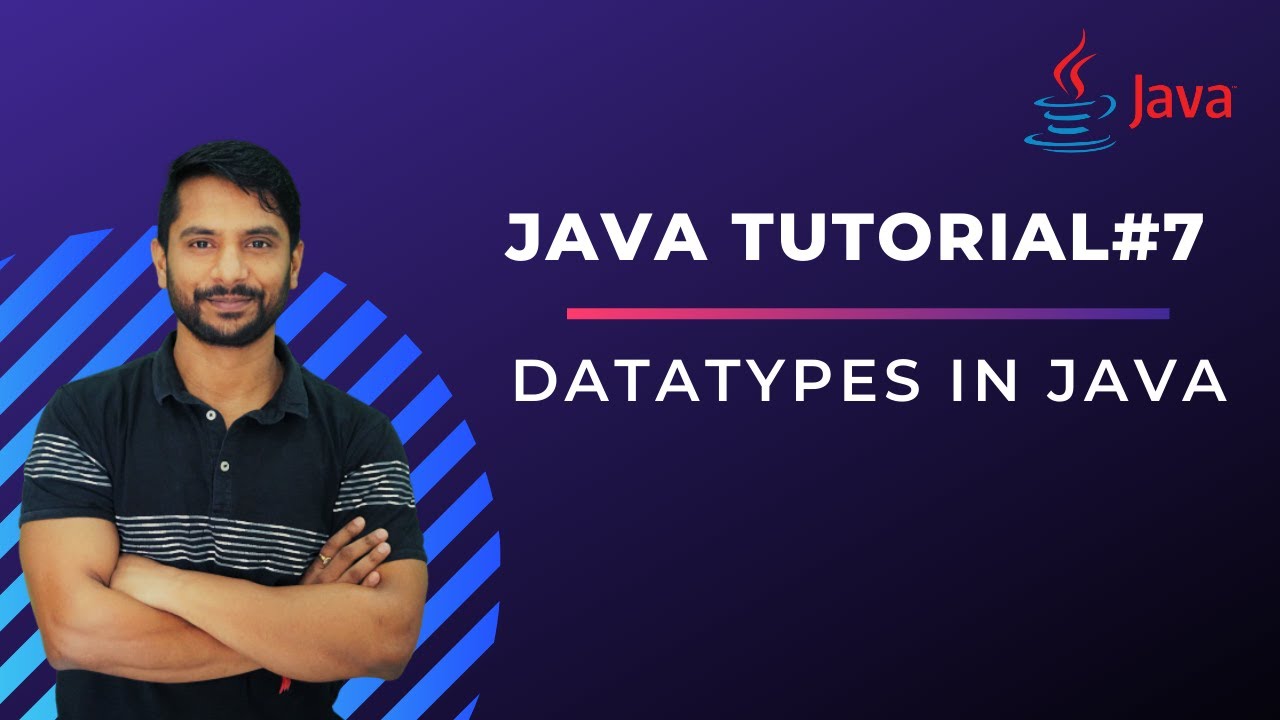☕️ Curso de Java na prática - Variáveis (tipos primitivos) - aula 6 - Fundamentos Parte 1/5 #java
Summary
TLDRIn this introductory Java lesson, Professor José de Assis explains the fundamentals of Java programming, focusing on variables and their data types. He covers literal, numeric, and boolean types, along with the rules for naming variables in Java. The lesson emphasizes the importance of initializing variables before use and demonstrates common errors in variable declaration. Through practical examples, the lesson helps students understand how to work with different types of variables such as `String`, `int`, `double`, and `boolean`, while also offering insights on debugging and troubleshooting in Java programming.
Takeaways
- 😀 Variables in Java store data in memory, which can be modified over time.
- 😀 There are three main types of data in Java: literal (for characters), numeric (for integers and decimals), and boolean (for true or false values).
- 😀 Variable names in Java must start with a lowercase letter and cannot include special characters, spaces, or reserved keywords.
- 😀 Java is case-sensitive, meaning variable names distinguish between uppercase and lowercase letters.
- 😀 To name variables with multiple words, use camelCase (e.g., 'nomeAluno' instead of 'nome aluno').
- 😀 Always initialize variables before using them in Java. For example, `String nome = "José de Assis";`
- 😀 For strings, use double quotes (`"`) to enclose the value, and for characters, use single quotes (`'`).
- 😀 Numeric variables in Java, like integers and decimals, should not have quotes around their values. Use a dot (`.`) for decimal points, not a comma.
- 😀 If a variable is not initialized, Java will throw an error when you attempt to use it. Make sure to assign a value during declaration.
- 😀 When working with booleans, remember they can only be `true` or `false` (e.g., `boolean isActive = true;`).
- 😀 Always validate the syntax when creating variables and ensure the data type aligns with the value being assigned to it.
Q & A
What are the three main data types discussed in the script for Java programming?
-The three main data types discussed are: literal types (characters and other symbols), numeric types (integer and non-integer numbers), and boolean types (which accept only 'true' or 'false').
What is the naming convention for variables in Java?
-In Java, variable names must start with a lowercase letter, and if the name consists of more than one word, the second and subsequent words should start with an uppercase letter. This is known as camel case (e.g., 'nomeAluno').
What is meant by Java being 'case sensitive'?
-Java being 'case sensitive' means that it distinguishes between uppercase and lowercase letters. For example, 'nome' and 'Nome' would be treated as two different variables in Java.
What should you avoid when naming variables in Java?
-When naming variables in Java, you should avoid using special characters, spaces, or reserved keywords. Variable names must also start with a lowercase letter.
What does 'camel case' refer to in Java programming?
-'Camel case' refers to the naming convention where multiple words in a variable name are combined without spaces, and each subsequent word starts with an uppercase letter, such as 'nomeAluno'.
How does Java treat the variable types: primitive vs non-primitive?
-Primitive variables in Java, such as 'int', 'boolean', and 'double', hold simple data values directly. Non-primitive types, like 'String' and arrays, hold references to objects or collections of data.
Why is it important to initialize variables before use in Java?
-It is important to initialize variables before use because uninitialized variables can lead to errors or unexpected behavior in the program. Java will flag variables that are declared but not initialized.
What is the correct way to initialize a 'String' variable in Java?
-A 'String' variable should be initialized with double quotes around the value, such as: 'String nome = "José de Assis";'.
What error occurs when you try to use a 'String' variable without initializing it in Java?
-If you try to use a 'String' variable without initializing it, Java will produce an error indicating that the variable is not initialized, as seen when trying to use 'nome' before assigning a value.
What is the difference between using a period and a comma in decimal numbers in Java?
-In Java, a period is used as the decimal separator (e.g., '26.7'), while a comma will cause a syntax error because Java does not recognize commas as valid decimal separators.
Outlines

This section is available to paid users only. Please upgrade to access this part.
Upgrade NowMindmap

This section is available to paid users only. Please upgrade to access this part.
Upgrade NowKeywords

This section is available to paid users only. Please upgrade to access this part.
Upgrade NowHighlights

This section is available to paid users only. Please upgrade to access this part.
Upgrade NowTranscripts

This section is available to paid users only. Please upgrade to access this part.
Upgrade Now5.0 / 5 (0 votes)





